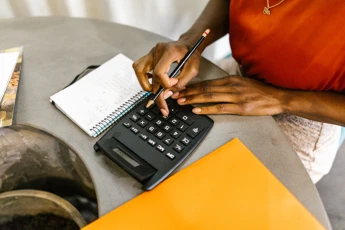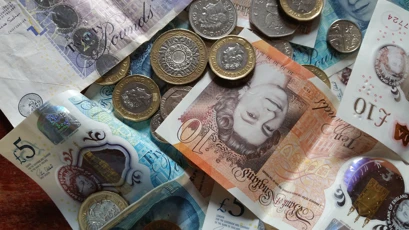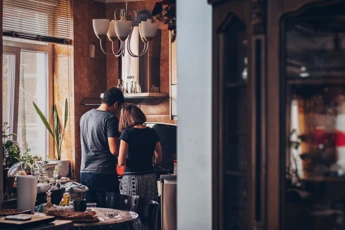While the prospect of saving up for a deposit may seem like a difficult task, particularly with the ongoing cost of living crisis making everything so expensive, there are lots of things you can do to help you buy a house.
Saving regularly not only means you’ll have the deposit ready when you come to buy your house, but it also shows lenders that you’re likely to repay your mortgage on time. From budgeting wisely and making cutbacks, to taking advantage of government schemes and speaking to a mortgage adviser, there are countless ways that you can help improve your chances of saving up enough to buy a house.
1. Budget wisely
Regularly reviewing and adjusting your budget as needed will help you to stay on track and accelerate your progress towards your savings goals. With this in mind, you should consider any unexpected costs and be sensible when making estimations - it’s better to over-estimate than under-estimate.
By carefully analysing your income and expenses, you can identify areas where cutbacks can be made to save for a deposit. For instance, are you paying for a gym membership or streaming subscription that you don’t use anymore?
You might want to consider setting up a direct debit so that you automatically send money to your savings account each month. This way, you don’t have to remember to do it yourself. Plus, the money isn’t sitting in your current account where you might be tempted to spend it.
2. Make cutbacks
When saving for a house, making cutbacks doesn't have to feel like sacrificing everything you enjoy. Instead, by consciously monitoring your spending, you can build up your savings quickly and bring your dream of owning a house closer to reality.
One effective way to save is by reviewing and optimising your regular expenses, such as gas, electricity, and insurance. By ensuring you're not overpaying for these essential services, you can free up extra funds for your savings.
Additionally, it's important to examine your discretionary spending on activities like dining out and shopping. While it may seem like these expenses are insignificant, reducing them can lead to significant savings over time. For example, challenging yourself to limit dining out to only two meals per month is a simple adjustment that can help you make noticeable progress towards your savings goal.
3. Take advantage of government schemes
There are a number of government schemes you can take advantage of that will help to boost your deposit, including:
Lifetime ISA
The Lifetime ISA is essentially a savings account with a few added benefits. You can pay up to £4,000 each year into your account and receive a 25% bonus (£1,000 maximum) from the government.This serves as a significant boost to your savings, helping you reach your deposit goal faster.
Shared Ownership
Shared ownership is a housing scheme in which buyers purchase a share of a property (usually between 25-75%) and pay rent on the remaining portion owned by a housing association or developer. This allows individuals to get on the property ladder with a lower deposit and gradually increase their ownership over time.
First Homes
First Homes is a government initiative in the UK aimed at helping first-time buyers get onto the property ladder. It offers a discount of up to 30% on the market value of a new-build home, making it more affordable for eligible applicants.
4. Use the bank of Mum and Dad
As well as considering these steps to boost your savings, a failsafe solution if you are fortunate enough to have it is financing your home purchase through funding from your family or loved ones - otherwise known as the ‘Bank of Mum and Dad.’
If you’re planning on using the Bank of Mum and Dad to get on the property ladder, you should remember that lenders will stipulate that these funds have to be a gift, and not a loan that needs to be paid back. It may even be the case that the lender asks the individual gifting the money to sign a gifted deposit letter, and may request an audit trail to see where that deposit has been.
5. Talk to a mortgage adviser
Whether you’ve just started saving or you’re ready to buy your first home, getting mortgage advice from a professional is invaluable.
Our advisers can search over 12,000 mortgage products from more than 90 lenders to find the right one for your needs. They will look at your income and outgoings to work out how much you can afford to borrow and how much you need to save. Following this, they’ll explain all the options available to help you buy your first home.
If you have any questions or concerns, please feel free to contact us today. We can be there to support you and handle your whole application from beginning to end.
Important information
Your home may be repossessed if you do not keep up repayments on your mortgage.
There may be a fee for mortgage advice. The actual amount you pay will depend on your circumstances. The fee is up to 1% but a typical fee is 0.3% of the amount borrowed.
Related Articles
The best way to save for your first home
Owning your first home is an exciting milestone, but it often comes with a financial hurdle - saving up for a deposit.
How to start a savings habit
Starting a savings habit is a crucial step towards achieving financial stability and securing your future into retirement.
How to buy your first home with a small deposit
If you want to learn how to buy your first home with a small deposit, then you're in the right place! We'll walk you through your available options and next steps necessary to get your feet on the housing ladder.
No posts currently available




